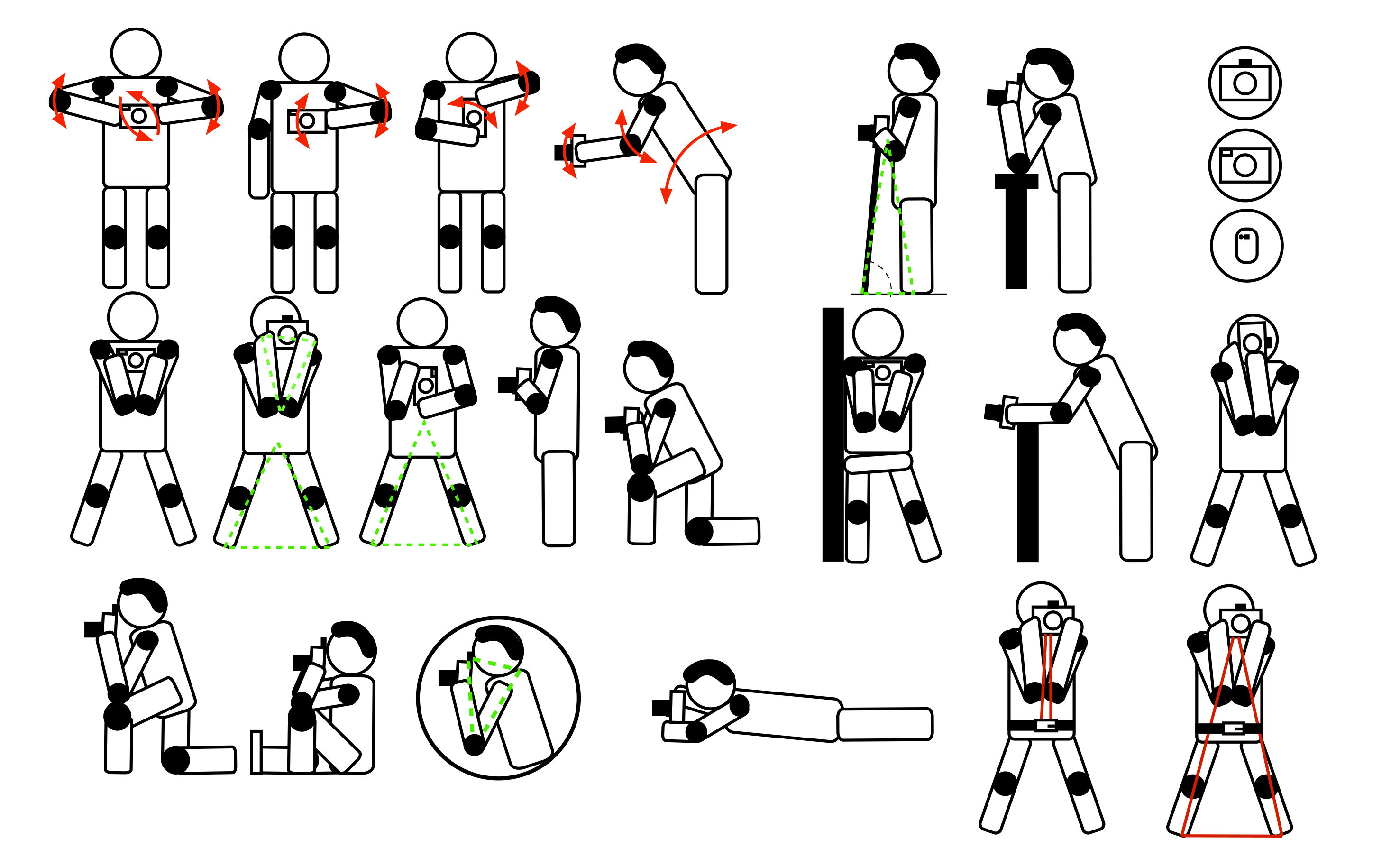“Digital Camera Mastery,” a course from Photography Pro, is aimed at people who are complete beginners. These days we all know how to take a photo, and sometimes our phones are so clever that they will make those photos look great.
But if you want to understand how a good photo is made, you might want to look at a course that covers the basics. Our review will tell you what we like about this course. We’ll look at what it covers and things it could do better. And we will tell you if we think it’s worth buying “Digital Camera Mastery,” so read on!
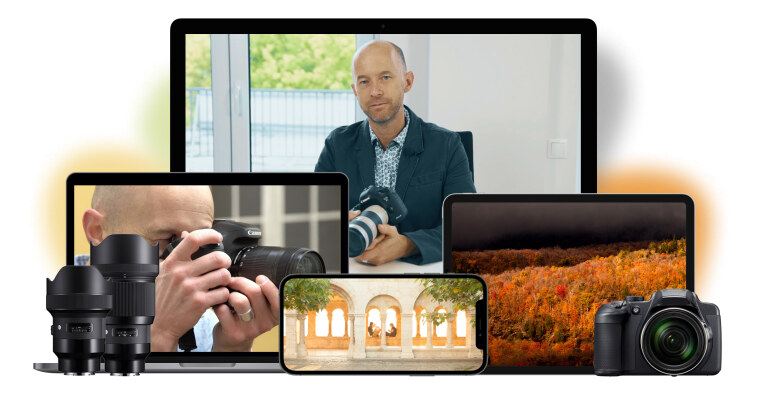
Digital Camera Mastery is a beginner photography course. It promises to make you comfortable with your camera in all situations. It teaches you compositional rules, concepts, lighting techniques, and basic editing.
After watching the course, I think that it’s successful in achieving these. It trains you only for the basics in all these aspects but does it well. The course helps you take your camera knowledge to the next level and become more conscious.
The video format of the presentation is a perfect, easy-to-digest choice.
If you opt for Digital Camera Mastery, it will cost you $99, which is the standard price for such courses. You can pick up our own similar course for $97 as well.
For a more advanced, but still beginner-level course, Photography Pro offers Photo Shortcuts. I’m coming up with a review on that course soon, too. (Update – check my Photo Shortcuts review here!)
The course is made up of seven modules, plus a bonus module and four bonus episodes. The modules are the following:
<img class=”aligncenter wp-image-267739 size-full” src=”https://cdn.expertphotography.com/wp-content/uploads/2020/01/digital-camera-mastery-welcome-page.jpg” alt=”A screenshot from the welcome page of Digital Camera Mastery online photography course ” width=”700″ height=”678″ />
And the extra episodes include:
The chapters are built on each other, but in my experience, they can be consumed individually and still be valuable.
At the end of each episode, you will find a summary of its contents. For every note, there’s a timecode to help find it in the video. They are beneficial for quick recaps.
<img class=”aligncenter wp-image-267742 size-full” src=”https://cdn.expertphotography.com/wp-content/uploads/2020/01/digital-camera-mastery-module-7.jpg” alt=”A screenshot from Digital Camera Mastery online course module on choosing the best lens” width=”700″ height=”636″ />
Photography Pro has a closed Facebook community with thousands of customers. At the end of some episodes, you get an assignment to photograph (or edit). It’s advised to upload the result to the Facebook community. This is a good way to practice, as you can get and give feedback.
Viewers also have the option to comment on the course website. Staff tend to respond in a short time. Other students also often join the conversation. The community is great, and people try to support each other.
However, you might not get the proper answer even from the staff – be aware of this, and double-check.
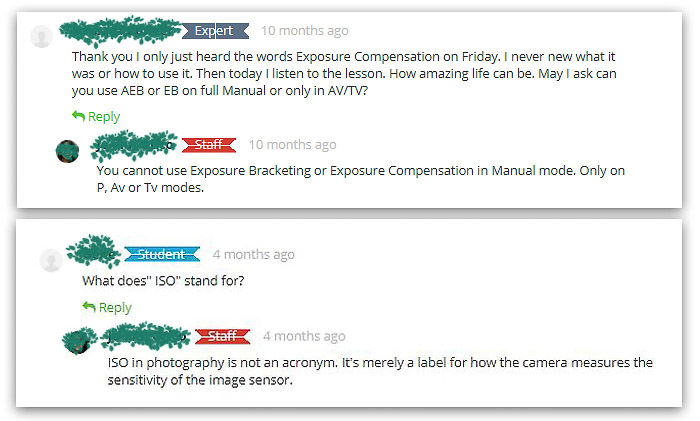
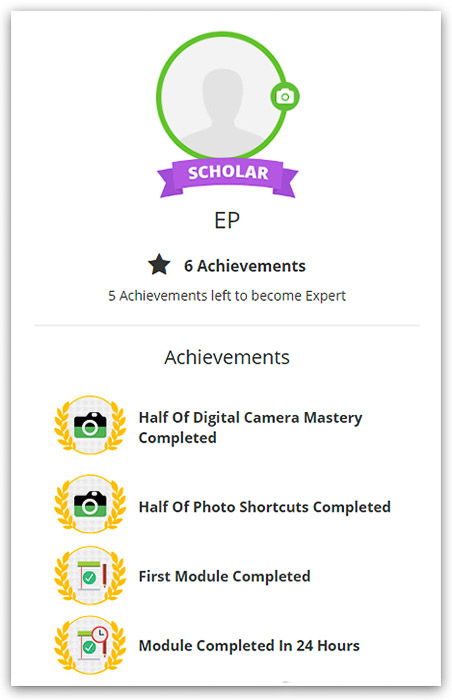
The author and presenter of Digital Camera Mastery is Mark Hemmings. He is a professional photographer from Canada. His career began decades ago with photographing stills on feature film sets.
He lived in Japan for a while, where he learnt the craft of advertising photography. Later, he became known for his work as a travel and still photographer. He’s offering workshops around the world and producing courses, like this one.

His style is consistent and concise. The lessons are presented in an entertaining yet straight-to-the-point form. This helps your progress in learning.
He clearly has a lot of experience in marketing, which also shows in the way he teaches. When I was watching the episodes, I had a recurring feeling that he was still trying to sell the course to me. In my opinion, the language should have been a little less in the marketing style.
As I mentioned, the course overall is great. But it does have some issues.
Mark excels when talking about light and composition. He does it precisely and without overcomplicating. In contrast, he does not always explain the technical side well. This is especially true in Module 7, Photography Gear And Accessories.
In the introduction, he states that “after watching this video, you’ll have all of the information you need to choose the lens that’s appropriate for your favourite type of photography”. But this is not so true.
His purpose is to make complete beginners understand things like focal length, zoom, shutter speed or aperture easily. But by oversimplifying and leaving out information, this effort might just prove to be contradictive.
Let me point out a few of these from “Choose the Right Lens for the Right Job!”, Module 7.
Of course, it’s not only this single episode that has such problems.
Be aware of this when buying the course, and don’t make gear decisions based solely on it. It might be an expensive mistake.
My other complaint is the quality of some photos in the course. Mark is an experienced professional. He illustrates his points with outstanding images, in most cases.
There are instances where the images are not to his usual high standard – like in some of the landscape section.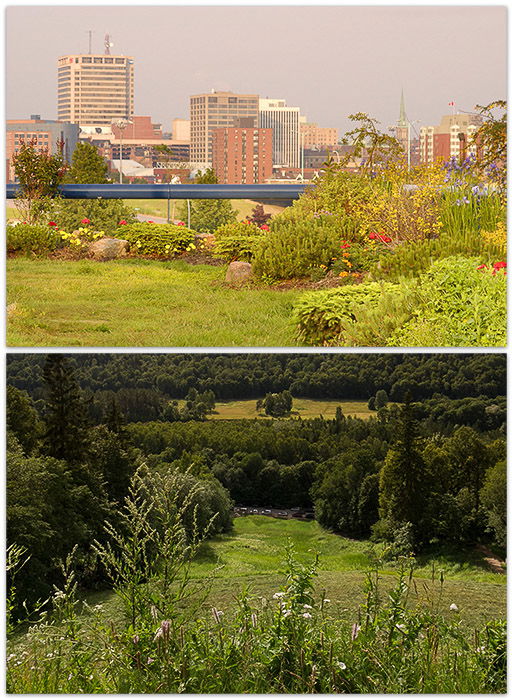 The landscape episode also misses a lot of information, like the effect of time of day, which is the very base of landscape photography.
The landscape episode also misses a lot of information, like the effect of time of day, which is the very base of landscape photography.
Such mistakes – let’s call them so – appear throughout the course. They are definitely not deal-breakers, but keep an open eye on them. I also think that Photography Pro should fix them in an update.
Now let’s see the top reasons why I recommend the course. Because there are a lot of things to be liked here.
A key advantage of most paid courses over YouTube is their organised content. They bring you from A to B following a clear line of thought.
It’s no different in this case. Digital Camera Mastery is a well planned and prepared product.
Pair this with the natural flow that comes from Mark’s style, and you get a well-rounded course.
It covers almost everything that a beginner photographer needs to know.
I love the way Mark emphasises the effect of light. He talks about options to shape it, work around it, or prepare for different lighting situations. This is something many other courses miss out on, even though it’s the very core of photography.
He teaches the differences in artificial and natural light, and how you can get both two work for your needs. These parts are always nicely illustrated with adequate images. It shows that Mark has great knowledge of the matter.
There are also sections where he shows the power of story-making with images. It’s something that’s often not accentuated enough. People tend to fall into the trap of approaching too much from the technical side.
I’d love to see story-making articulated, even more, Mark is excellent at it.

Despite considering myself an experienced photographer, I’ve still learnt some new things. One of my favourites was the use of exposure bracketing in street and travel photography.
When I’m photographing on the run, I shoot in burst mode to get the right moment. There’s still the danger of messing up the exposure. So, why not combine the two, and shoot a bracketed burst?
While I haven’t been able to use it yet, I know it will be a great tool in contrasty scenes.
I have no doubt that taking the Digital Camera Mastery course can dramatically reduce the time needed to get the basics laid down firmly.
Everything is explained in a manner that makes it easy to comprehend.
There is no professional jargon, which, in a beginner course, is a good thing. You can learn the lingo later when the fundamentals of taking photos are clear.
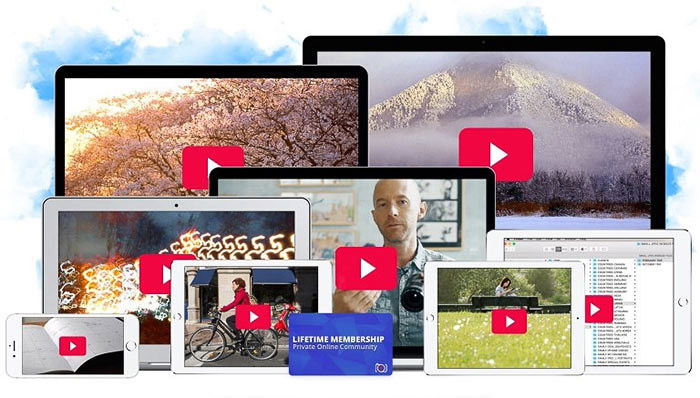
Of course, the field of online photography courses is crowded. Let’s see how Digital Camera Mastery compares to its rivals.
Digital Camera Mastery is a great way to plunge headfirst into photography. It has a competitive price, and thus a very firm place on the market.
There are areas to improve, but my overall verdict is that it’s worth it. And if for some reason, you wouldn’t like it, Photography Pro offers a full refund.
Check out the course here.
To standardise and compare our product reviews, we’ve decided to use a scored-based ranking system. To learn more about interpreting these numbers and how other courses measure, please visit our review roundup page here.
| Measurement |
Measurement
Score
|
| Coverage |
Coverage
|
| Accuracy |
Accuracy
|
| Ease of Learning |
Ease of Learning
|
| Production Value |
Production Value
|
| Community and Learning Support |
Community and Learning Support
|
| Value for Money |
Value for Money
|
| Total Score |
Total Score
|

